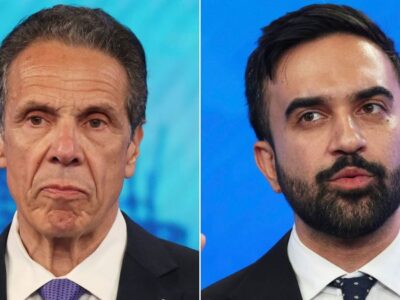Does the President Even Need the Senate to Confirm Appointees?
Damn.

I suppose that it’s an occupational hazard of law professors that they kick around an idea, only to find that someone has beaten them to the punch. Well, Harvard’s Matthew Stephenson has done that to me, sort of, with an essay in the most recent volume of the Yale Law Journal entitled, Can the President Appoint Principal Executive Officers Without a Senate Confirmation Vote? Here’s the abstract:
It is generally assumed that the Constitution requires the Senate to vote to confirm the President’s nominees to principal federal offices. This Essay argues, to the contrary, that when the President nominates an individual to a principal executive branch position, the Senate’s failure to act on the nomination within a reasonable period of time can and should be construed as providing the Senate’s tacit or implied advice and consent to the appointment. On this understanding, although the Senate can always withhold its constitutionally required consent by voting against a nominee, the Senate cannot withhold its consent indefinitely through the expedient of failing to vote on the nominee one way or the other. Although this proposal seems radical, and certainly would upset longstanding assumptions, the Essay argues that this reading of the Appointments Clause would not contravene the constitutional text, structure, or history. The Essay further argues that, at least under some circumstances, reading the Constitution to construe Senate inaction as implied consent to an appointment would have desirable consequences in light of deteriorating norms of Senate collegiality and of prompt action on presidential nominations.
The implications for environmental law are obvious, as a filibuster of an appointee in any number of key environmental positions is far from unlikely.
Stephenson’s key move, which I have argued before in blog posts but never in a scholarly journal, is that there is a constitutional difference between appointments to Executive branch posts and all other posts (mostly judicial posts). Stephenson notes that in the case of senior executive branch appointments, “the case for strong Presidential authority is at its apex.” He then makes an argument based on constitutional text and original meaning that Senatorial “consent” can be read as “acquiescence,” and suggests for a variety of pragmatic reasons that in certain cases of senior executive branch appointments, the failure of the Senate to vote up or down on a nominee is tantamount to “consent.” Read the whole thing, as they say.
My central disagreement with Stephenson lies in his choice of a remedy for continuing Republican obstructionism (although he doesn’t directly call it that). Overturning 200 years of very strong precedent requiring Senate confirmation is a move of such radicalism that it has no chance of being adopted. This radicalism is why Stephenson sensibly limits his proposal to “senior” Article II offices, but it seems to me constitutionally arbitrary to split the executive branch that way. Moreover, it could lead to strange strategic behavior. If the President is a Republican, and the Senate is Democratic, minority Republicans could filibuster any attempt by the majority to vote down a nominee and then have her “confirmed” by inaction. That seems odd.
Instead, it is better simply to say either that 1) for executive branch appointments, courts will imply anti-filibuster canon of construction regarding the appointment’s organic statute (e.g. reading the provision in the statute requiring confirmation of the Secretary of State as precluding a filibuster); or 2) rule that executive branch filibusters are unconstitutional. These rules ironically preserve more of a Senate role than Stephenson’s. The anti-filibuster canon also has an important advantage that Stephenson’s contains: it does not purport to limit the Senate’s power under Article I, Section 5, empowering each house to make its own rules.
Simply ruling that Article II filibusters are unconstitutional does pose a challenge under Article I, Section 5, but the President has the responsibility to “take care to see that the laws are faithfully executed,” and Article II filibusters interfere with that in one of the core areas of Presidential power: appointments. Surely a house could not refuse to seat a duly elected representative on account of race, but nothing in the Constitution specifically forbids that. There are limits to Article I, Section 5: it does not trump everything. Moreover, if the Supreme Court can suddenly decide, as it seems likely to, to declare Section 5 of the Voting Rights Act unconstitutional because it just sort of feels like it, as well as ignoring 200 years of Sweeping Clause jurisprudence in the health care cases, then surely it can declare Article II filibusters unconstitutional because of the Take Care clause and the nature of the executive branch. (This is one advantage for law professors of the Supreme Court’s extreme right-wing activism: just about any idea is plausible because the justices have little compunction in ignoring precedent.).
In any event, Stephenson has started a necessary and proper debate, and I hope that it generates a lot of important scholarly commentary — maybe even some of it by me!







Reader Comments